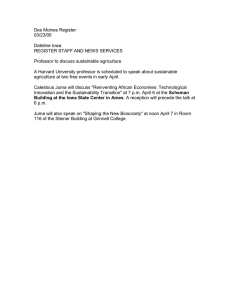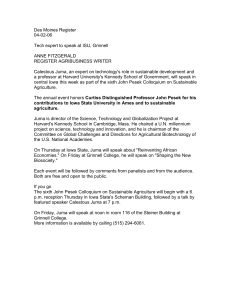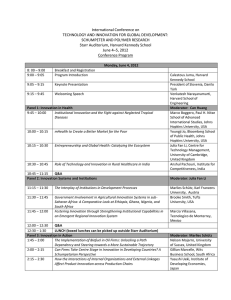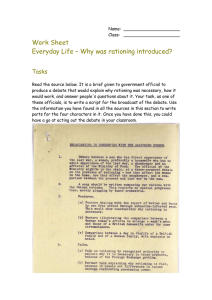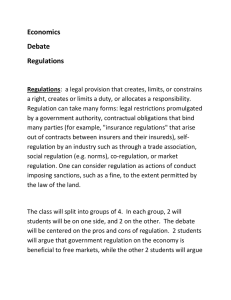Des Moines Register 04-08-06 Biotech-crops debate 'not over,' expert says
advertisement
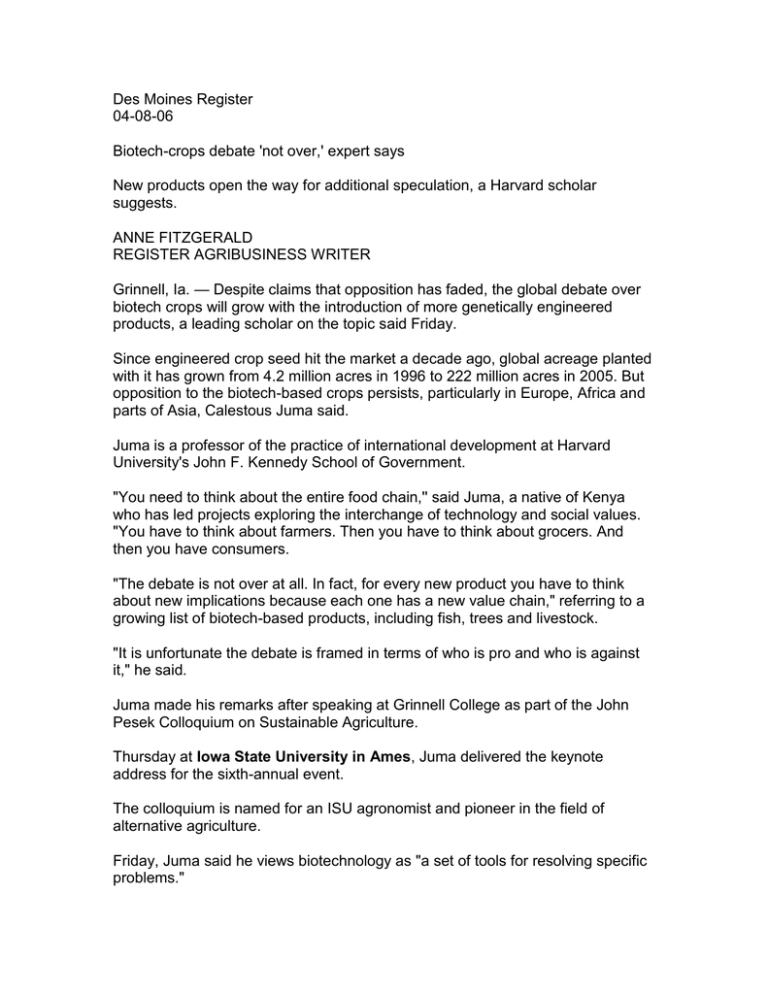
Des Moines Register 04-08-06 Biotech-crops debate 'not over,' expert says New products open the way for additional speculation, a Harvard scholar suggests. ANNE FITZGERALD REGISTER AGRIBUSINESS WRITER Grinnell, Ia. — Despite claims that opposition has faded, the global debate over biotech crops will grow with the introduction of more genetically engineered products, a leading scholar on the topic said Friday. Since engineered crop seed hit the market a decade ago, global acreage planted with it has grown from 4.2 million acres in 1996 to 222 million acres in 2005. But opposition to the biotech-based crops persists, particularly in Europe, Africa and parts of Asia, Calestous Juma said. Juma is a professor of the practice of international development at Harvard University's John F. Kennedy School of Government. "You need to think about the entire food chain,'' said Juma, a native of Kenya who has led projects exploring the interchange of technology and social values. "You have to think about farmers. Then you have to think about grocers. And then you have consumers. "The debate is not over at all. In fact, for every new product you have to think about new implications because each one has a new value chain," referring to a growing list of biotech-based products, including fish, trees and livestock. "It is unfortunate the debate is framed in terms of who is pro and who is against it," he said. Juma made his remarks after speaking at Grinnell College as part of the John Pesek Colloquium on Sustainable Agriculture. Thursday at Iowa State University in Ames, Juma delivered the keynote address for the sixth-annual event. The colloquium is named for an ISU agronomist and pioneer in the field of alternative agriculture. Friday, Juma said he views biotechnology as "a set of tools for resolving specific problems." For Africa, for instance, biotech could help boost food production and reforestation, he told a standing-room-only crowd at the college in Grinnell. Biotechnology's use in agriculture doesn't mark the first time society has debated the safety of new technology, Juma said. For centuries, people have argued about coffee's impact on human health and society — an ongoing debate even at Harvard, he said. "I tell my friends, 'You should prepare your grandchildren for debate,' " Juma said.
